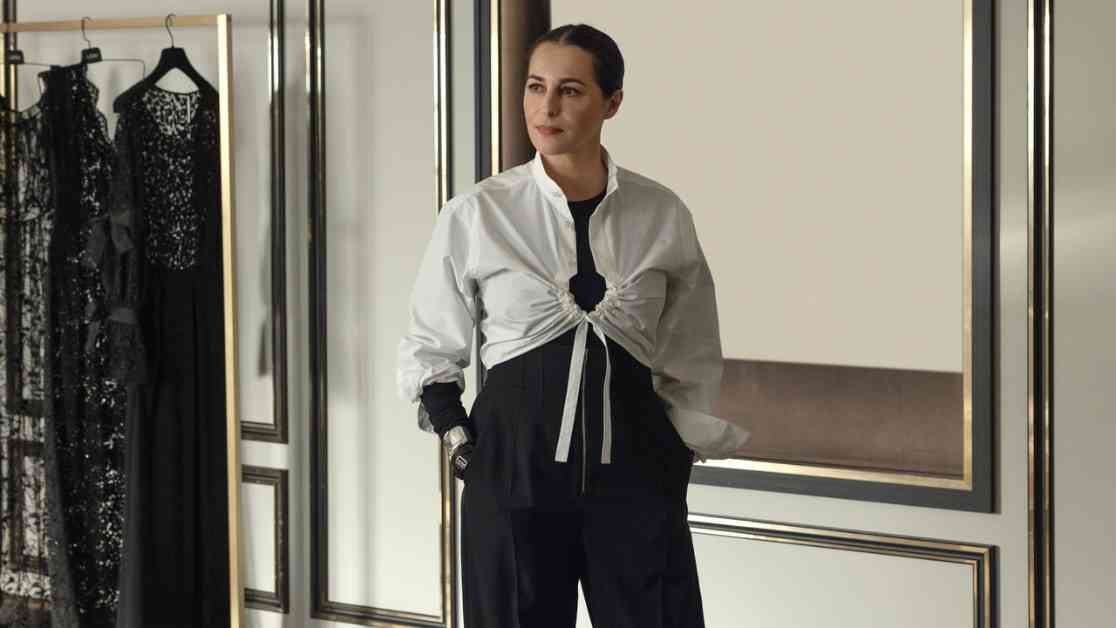La Maison is a new show created by executive producer Alex Berger, aiming to portray the fashion industry in a way that is both glamorous and realistic. The show follows the drama and intrigue of a family-owned fashion house, with themes similar to the popular series Succession. While La Maison may not have the sharp dialogue of Succession, it does provide a glimpse into the cutthroat world of the ultra-wealthy, complete with stunning fashion choices.
One aspect of the show that rings true to real life is the depiction of fashion brands destroying their unsold clothes. Luxury and fast-fashion brands alike engage in the controversial practice of incinerating unsold inventory to maintain their brand image and avoid markdowns. This wasteful practice contributes to the large amount of textiles destroyed each year in Europe.
Another accurate portrayal in La Maison is the use of discarded fabrics from other brands. The show features a runway show where garments are created from deadstock fabrics rescued from incineration plants. This mirrors the efforts of real-life designers who are committed to using sustainable materials and reducing waste in the fashion industry.
While the show takes some creative liberties, such as fashion CEOs avoiding their competitors’ advertisements, there are elements that reflect reality. For example, the storyline of a designer being asked to step down following a scandal is reminiscent of real-life incidents like John Galliano’s fall from grace. Additionally, the concept of retrospective fashion shows, where designers revisit pieces from their archives, is a common practice in the fashion world.
One aspect of the show that may stretch believability is the timeline for designers to create and showcase collections. In La Maison, we see a quick turnaround from the appointment of a new creative director to the presentation of a new collection. While fashion houses do have deadlines to meet, the pace depicted in the show may be exaggerated for dramatic effect.
Finally, the idea of in-house muses, like the character Perle Foster in La Maison, has a basis in reality. Many designers throughout history have relied on muses to inspire their work and provide creative direction. These muses may not be designers themselves, but they play a crucial role in shaping the vision of a fashion house.
Overall, La Maison provides an intriguing look into the world of high fashion, blending drama with elements that resonate with real-life practices in the industry. The show’s mix of fantasy and reality offers viewers a glimpse behind the glamorous facade of the fashion world, highlighting both the creativity and challenges that come with it.
